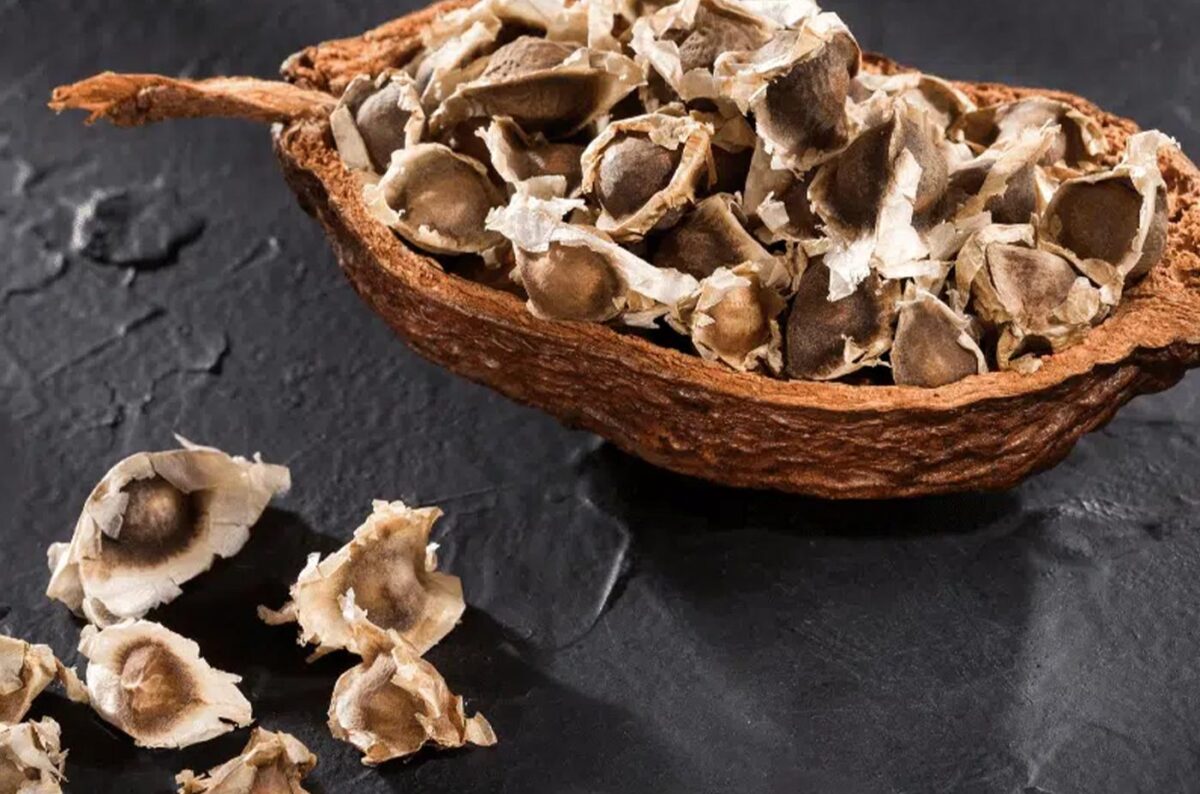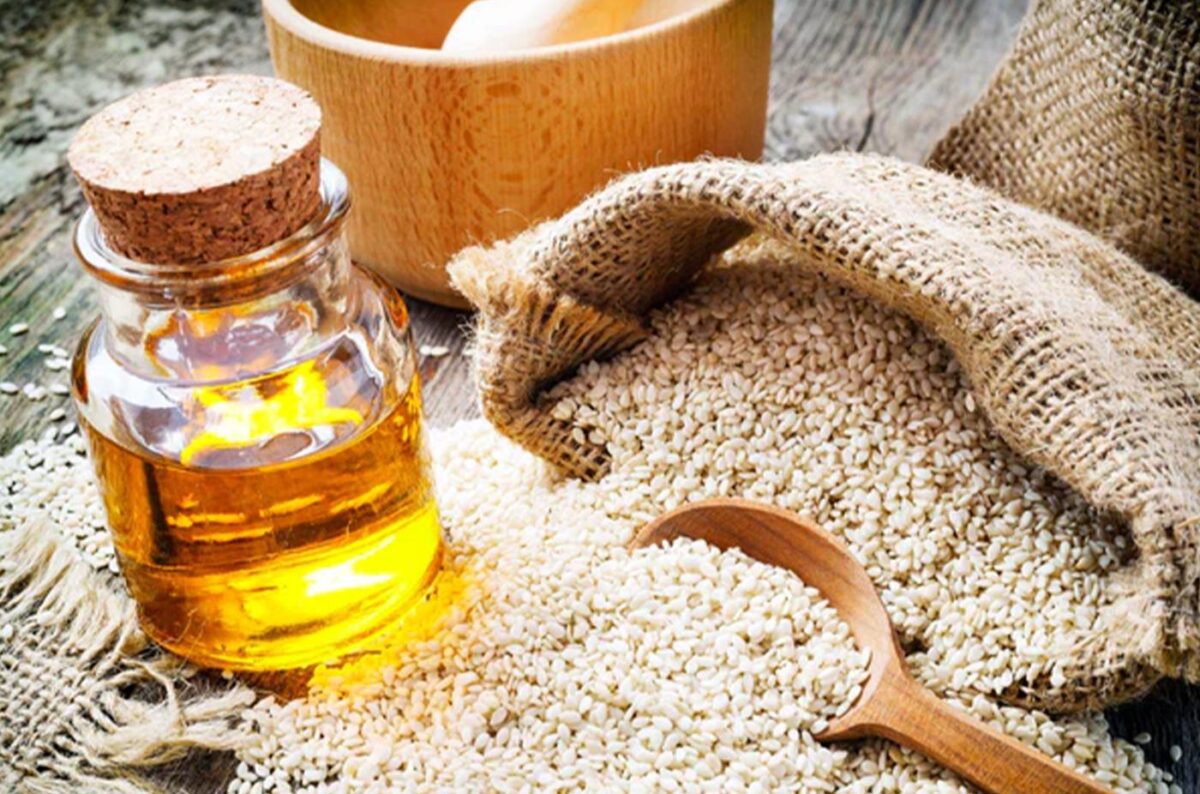
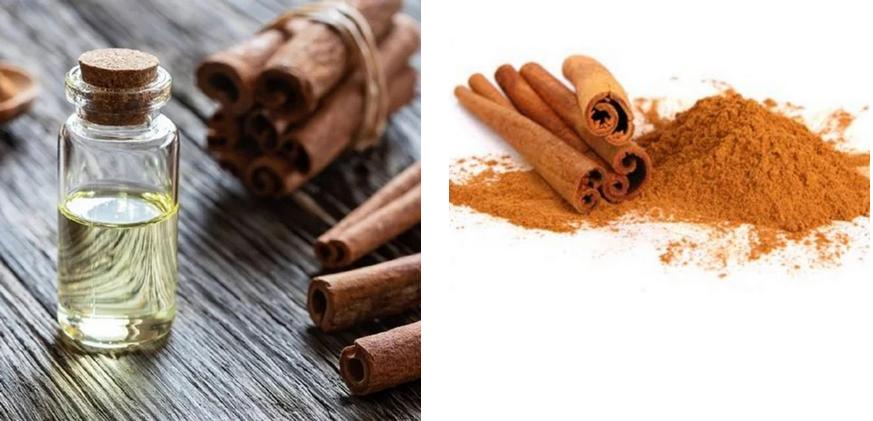
Introduction
Cinnamon bark oil is derived from the Cinnamomum verum plant, native to South Asia and now grown worldwide in various forms, including essential oil and spice.
With over 100 varieties grown today, two popular types are Ceylon cinnamon and Chinese cinnamon. Cinnamon has a long history, dating back thousands of years, and was highly valued by ancient civilizations, including Egyptians and Chinese medicine practitioners, for its healing properties. It’s also been associated with protection and prosperity, and was even considered a valuable commodity equivalent to gold in ancient Egyptian times.
Some Health Benefits of Using Cinnamon Bark Essential Oil
Cinnamon oil is a highly concentrated source of beneficial antioxidants.
Used cosmetically or topically in general, cinnamon essential oil is reputed to calm dry skin and to effectively alleviate aches, pains, and stiffness experienced in the muscles and joints and in the digestive system. Its antibacterial properties make it ideal for use in addressing acne, rashes, and infections.
But the benefits of its use do not end up there.
Cinnamon is known to possess antioxidant, anti-inflammatory, antimicrobial, anti-diabetic, and anticancer properties. It can also help to fend off heart disease, high cholesterol and neurological health disorders, like Alzheimer’s and Parkinson’s disease. Cinnamon essential oil is touted as a natural remedy for health concerns ranging from cough and colds to constipation.
In addition, cinnamon essential oil is said to stimulate circulation, reduce stress, relieve pain, fight off infections, improve digestion, and protect against insects
Used for oral health :Preliminary findings from laboratory studies and animal-based research indicate that compounds found in cinnamon essential oil may help destroy Streptococcus mutans (a type of bacteria closely linked to the development of cavities in teeth.) and Candida ssp biofilm, two agents which cause oral infections and cavities in teeth.
The major active components of cinnamon essential oil taken from the bark are cinnamaldehyde, eugenol, and linalool. These three make up about 82.5 percent of the oil’s composition. The primary ingredient of cinnamon essential oil depends upon which part of the plant the oil comes from: cinnamaldehyde (bark), eugenol (leaf) or camphor (root).
Cinnamon bark essential oil is extracted from the outer bark of the cinnamon tree. It’s considered very potent and has a strong, “perfume-like” smell, almost like taking an intense whiff of ground cinnamon. Cinnamon bark oil is usually more expensive than cinnamon leaf oil, as it may be more potent.
Many of the benefits of cinnamon bark oil have to do with its ability to dilate blood vessels. Cinnamon bark can help enhance nitric oxide function, which causes increased blood flow and lower levels of inflammation.
Several studies have confirmed some of the main health benefits of cinnamon bark essential oil, which include:
- It reduces blood sugar
- It decreases bad cholesterol
- It fights infections (antibiotic), parasites and reduces inflammation
- It stimulates the immune system as well as the libido
- Antidiarrhea
- Antiseptic
- Antispasmodic
- Antiviral
- Astringent
- Disinfectant


Common uses of Cinnamon Bark Essential Oil
1. Heart Health-Booster
An animal study published in 2014 demonstrates how cinnamon bark extract along with aerobic training can help to improve heart performance. The study also shows how cinnamon extract and exercise can help to lower both overall cholesterol and LDL “bad” cholesterol while raising HDL “good” cholesterol. The essential oil can also improve coronary flow and cardiac force and contractility.
Cinnamon has also been shown to help foster nitric oxide production, which is beneficial for people with heart disease or who have suffered from a heart attack or stroke. In addition, it contains anti-inflammatory and anti-platelet compounds that can further benefit arterial health of the heart.
2. Natural Aphrodisiac
In Ayurvedic medicine, cinnamon is sometimes recommended for sexual dysfunction. Animal research published in 2013 points towards cinnamon oil as a possible natural remedy for impotence. In the animal study subjects with age-induced sexual dysfunction, were administered Cinnamomum cassia extract. Cinnamon bark extract was shown to improve sexual function by effectively boosting both sexual motivation and erectile function.
Cinnamon essential oil may boost sexual motivation and erectile function, thereby enhancing one’s sex life . The study, which was conducted on aged rats, saw a boost in their sexual health.
The essential oil could increase the time taken for ejaculation. It also decreased the percentage of dead sperms in the aged rats – this could be attributed to the antioxidant properties of the oil.
The essential oil also stimulates hormone levels. More animal studies show that the oil can increase the weight of testes and seminal vesicles (a pair of glands that secrete semen)
Regular intake of the oil can also protect the male reproductive system. Though the observation was made only in rats, the possibilities in humans are promising.
3. It Improves Blood Sugar Levels
In both human and animal models, cinnamon has been shown to have positive effects on insulin release, which means it can help keep blood sugar stable and therefore prevent chronic fatigue, moodiness, sugar cravings and overeating.
In a study of 60 people with type 2 diabetes, three different amounts (one, three or six grams) of cinnamon supplementation taken for 40 days all resulted in lower blood glucose levels as well as lower levels of triglycerides, LDL cholesterol and total cholesterol.
Inhaling cinnamon essential oil can also help to keep unhealthy food cravings away.
4. For Skin, Hair and Lips
A study published in 2017 demonstrates how cinnamon bark essential oil can significantly stop the creation of several protein biomarkers that are involved in skin inflammation and tissue remodelling.. With its anti-inflammatory properties, cinnamon oil can be an effective natural remedy for inflammatory skin concerns like rashes and acne. Cinnamon essential oil can help treat skin inflammation and other related ailments. Studies show that it has biological activities on human skin . The oil inhibits the production of several protein biomarkers involved in inflammation.
The essential oil also has the potential to treat human skin disorders. In studies, its antioxidants showed a beneficial impact on human keratinocytes.
You can mix cinnamon essential oil with a carrier oil (like coconut oil) and apply it to the skin to take advantage of its antimicrobial capacity.
Cinnamon oil can be a benefit for hair, too. Cinnamon bark essential oil is recommended to boost hair health and growth. You can combine a few drops of cinnamon oil with a carrier oil such as almond oil for a quick homemade scalp treatment.
Using warm cinnamon oil for lips is a natural way to plump them by boosting circulation to this area. Combine two drops of cinnamon oil with a tablespoon of coconut oil for a great DIY lip plumper.

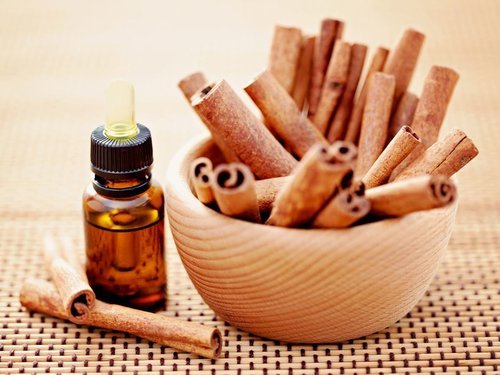
5. May Help with Weight Loss
Cinnamon is gaining a reputation for being a fat-burning food and valuable tool for weight loss. With its ability to balance blood sugar levels and sweeten the taste of foods without any added sugar, it’s very helpful for curbing a sweet tooth.
A study published in the journal Metabolism demonstrates how cinnamaldehyde, a chemical compound found in cinnamon oil, may potentially help fat cells to burn energy. The study specifically shows how cinnamaldehyde activates thermogenic and metabolic responses in both animal and human fat cells, which can be beneficial to weight loss and obesity prevention.
Unstable blood sugar can lead to overeating, low energy and weight gain, but adding cinnamon oil to fruit, tea, oats, baked goods or smoothies helps slow the rate at which glucose is released into the blood.
6. May Help Ulcers
A type of bacteria called Helicobacter pylori or H. pylori is known to cause ulcers. When H. pylori is eradicated or reduced this can greatly help with ulcer symptoms. A controlled trial looked at the effects of taking 40 milligrams of a cinnamon extract twice daily for four weeks on 15 human patients known to be infected with H. pylori. While the cinnamon did not completely eradicate the H. pylori, it did reduce colonization of the bacteria to some extent and it was well-tolerated by patients.
Research has also shown that a beneficial compound within cinnamon essential oil called eugenol may be one of the main reasons why cinnamon can help with ulcers. A study published in 2000 demonstrates how ethanol-induced gastric ulcers were “dose-dependently and significantly reduced by eugenol.” The eugenol decreased the number of ulcers as well as the severity of the ulcers.
7. Fights Parasites
Studies have found that cinnamon oil inhibits growth of certain harmful parasites, making it an excellent parasite treatment. One study published in 2014 in the Iranian Journal of Parasitology evaluated the effects of cinnamon and ginger on giardiasis, an intestinal infection caused by a giardia (G. lamblia) parasite. The study reveals the effectiveness of both ginger and cinnamon extracts as “promising natural therapeutic agents against G. lamblia.”
In vitro research also points towards cinnamon’s inhibitory effect on Plasmodium falciparum, which is a parasite that causes malaria humans. Researchers have found that cinnamon can help fight parasites by disturbing their amino acid biosynthesis, which is essential to their survival.

8. Helps Sore Throats
With its known anti-inflammatory, antimicrobial, antioxidant, and immunomodulatory effects, cinnamon essential oil is a great choice for fighting infections like a sore throat.
Try drinking a combination of hot lemon water, honey and cinnamon oil first thing in the morning to improve a sore throat and boost immune function.
These ingredients will work together to fight inflammation, reduce pain, and boost immune function making them a perfect sore throat remedy.
9. Fights Fungal Infections
According to research published in 2016, cinnamon oil and olive oil display antifungal and antimicrobial activity against fungal strains like Candida albicans, which is often the cause of toenail fungus and other fungal infections.
For natural toenail fungus treatment, try combining a few drops of cinnamon bark essential oil with olive oil and applying it to the problem areas.
10.. Combats hard-to-treat bacterial organisms.
A study which used bacterial cultures and lab tests, found that compounds in cinnamon oil had an antimicrobial effect against Pseudomonas aeruginosa, a potentially life-threatening, drug-resistant bacteria that affects plants, people, and other animals.
11. May Help Treat Cancer
Studies have shown that cinnamon essential oil may have protective effects on cancers of the head and neck. The oil achieves this by suppressing a specific cancer protein called EGFR-TK .
Cinnamon essential oil also showed anticancer activity against cancers of the prostate, lung, and breast.
12. Mood Enhancer, it may help with stress and depression
Aromatherapy has been long used for relieving stress and depression. Aromatherapy massage was found to have more benefits than inhalation aromatherapy.
Essential oils, including that of cinnamon, possess volatile compounds that penetrate the oral, dermal, and olfactory passages of the body. This way, the oil may aid depression treatment.
A study on college students revealed that the use of cinnamon essential oil in aromatherapy increased their alertness and reduced their stress . The oil also decreased frustration and increased perception in the students.
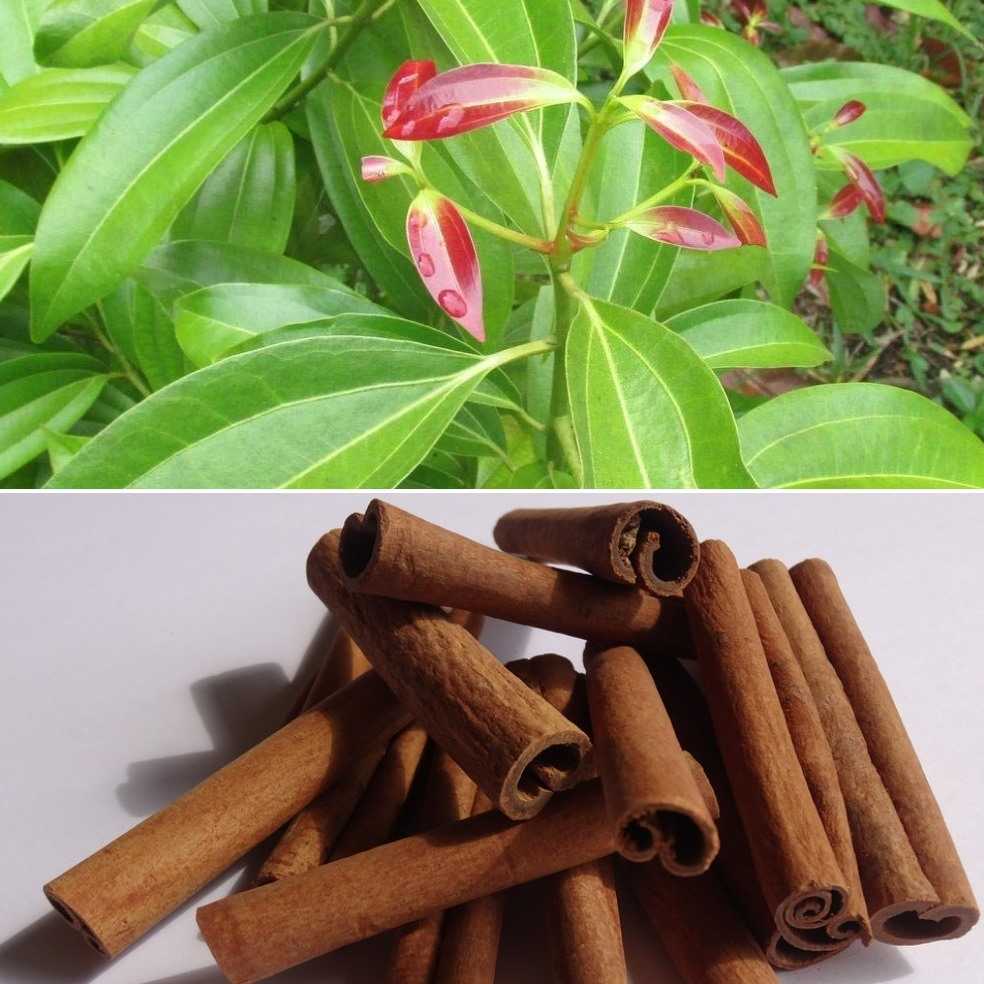
Cinnamon Essential Oil Recipes
Here’s how you can use cinnamon oil at home:
- Aromatically: Cinnamon oil can be diffused throughout your home using a diffuser. You can also directly inhale the oil by sniffing it right out of the bottle or applying some to your skin and clothes and smelling it that way, similar to a perfume.
Topically: You should always dilute cinnamon oil with a carrier oil like coconut oil in a 1:1 ratio before applying it directly.
According to a survey done by the Tisserand Institute, many manufacturers of cinnamon essential oil recommend avoiding topical use altogether.
A general recommendation is to keep the concentration of cinnamon oil low if it’s going to come in contact with skin. For example, one guideline of .01 percent concentration or less is equivalent to 1 drop of cinnamon oil for 30 to 40 milliliters (mL) of carrier liquid.
- Internally: The FDA recognizes cinnamon oil as safe for consumption, but ingesting any essential oil is ONLY recommended when you use a very high-quality oil from a reputable brand. This way you know exactly what you’re getting (and avoiding). Look for oil that’s therapeutic grade and organic, which ensures it’s been tested and meets all criteria, plus it will be free from chemical toxins, fillers or solvents. Just make sure it’s a 100 percent pure, organic and therapeutic grade essential oil.
- To use cinnamon oil internally, you can add a drop to water or take it as a dietary supplement by mixing it with honey or a fruit smoothie.
- You can also use cinnamon oil for cooking. Simply add a small amount (a few drops) of cinnamon oil to recipes, but avoid heating it to very high temperatures and cooking it for too long because that depletes its antioxidants and active ingredients. Cinnamon oil tastes like a very strong version of cinnamon spice so you can use the oil wherever you’d use ground cinnamon.
- Essentials oils that blend well with cinnamon include bergamot, cardamom, clove, ginger, nutmeg, orange, peppermint, rose and vanilla.
- Bacterial Infections –Try using cinnamon oil aromatically (such as diffusing) or topically (diluted). Try massaging over the area of infection within a carrier oil
- Bites/Stings- Prevent infections and irritation by diluting 1 drop of cinnamon bark oil with 3 drops of carrier oil and applying over the area.
- Breathing- For respiratory issues, such as asthma, start by diffusing in the air. You can also try direct inhalation (not too close at first) or massaging over the chest and neck (diluted first).
- Cooking- Cinnamon oil is “Generally Recognized as Safe” (GRAS) by the FDA, and can be used in cooking. Start off with a single drop (or less, using a toothpick to grab a small amount) until you know your ratios. Cinnamon essential oil can be used for cooking. You can try replacing a quarter cup of your normal cooking oil with a quarter cup of cinnamon oil. You can also use the oil as a salad dressing to impart a unique flavour.
- Diabetes- Cinnamon oil has been shown to help regulate blood sugar. Add to your food, take 1-2 drops within an empty capsule, or use for self massage over the area of the pancreas.
- Diverticulitis- Help decrease the inflammation and promote healing by massaging the diluted cinnamon oil over the abdomen daily.
- Fungal Infections- Diffuse in the air, and apply topically to the area of concern or to the soles of the feet for fast absorption.
- General Tonic- Diffusing this in the air on a regular basis is uplifting and supports the immune system. You can also use it topically, or in a bath.
- Immune System Stimulate- Diffuse throughout cold and flu season, within the classroom (makes a great gift for teachers), or add to the bath or steam tent while you’re fighting a bug.
- Infection- Depending on the type of infection you can massage the diluted cinnamon bark oil into the soles of the feet, over the area of concern, or simply diffuse throughout the area.
- Kill Airborne Bacteria- Diffuse this oil during cold and flu season, or add to a cotton ball and stick in your car’s vent while you drive.
- Libido Stimulate- Cinnamon oil is said to be an aphrodisiac for many. Try aromatic or topical usage on a regular basis.
- Mold- Fight fungus, mildew, and mold by applying cinnamon to the area. Use it in your cleaning products, diffuse it regularly in areas prone to mold, or apply it directly.
- Pancreas Support- As stated above (Diabetes), cinnamon oil has been found to support blood sugar levels and healthy pancreas function. Massage the diluted oil over the pancreas, to the soles of the feet, or use in cooking or as a supplement.
- Physical Fatigue- Cinnamon bark oil is very warming and may increase circulation, blood flow to the brain and energy levels when used aromatically. Try diffusing, adding to a bath, or even inhaling from the bottle.
- Pneumonia- During illness, diffuse cinnamon bark oil into the room to aid the healing process.
- Viral Infections- Very antiviral, massage the diluted cinnamon oil into the soles of the feet, over the area of concern, or over the whole body.
- Warming- The opposite of peppermint, cinnamon bark oil is very warming. Massage over your heart center, into the soles of the feet or around the neck for the best results.
- Hair fullness and growth – There’s no scientific evidence linking cinnamon to hair growth in humans. There have been studies in mice that found some thickening and growth of hair.Anecdotal reports and traditional practices indicate that a mask made of cinnamon, olive oil, and honey may be effective at promoting the growth and thickening of hair.
- Other possible uses include- circulation booster, fighting colds or coughs, aiding in digestion, increasing energy, eases inflammation associated with rheumatism, and even removing warts.
- You can also use the oil as a mosquito repellent. Some studies show it can destroy mosquito eggs (23). Simply mix ¼ teaspoon (24 drops) of the oil for every 4 ounces of water. You can then spray this mixture around your home, upholstery, and even plants.
Cinnamon Oil Interactions & Precautions
Cinnamon oil is generally considered safe, but there’s always the chance that some people might react to essential oils. Some individuals may experience irritation and/or allergic reactions when applying cinnamon essential oil to the skin. It is indeed possible for sensitive people to experience allergic reactions when cinnamon oil is taken or applied topically. This might show up as skin irritation, such as itching and rashes spreading on the body.
It’s best to do a skin test on a small patch of skin when using a new essential oil to make sure allergies aren’t a problem. And if you ingest cinnamon oil and experience issues like nausea, stomach pain and diarrhea, stop taking it right away.
A small number of people have reported a burning sensation and pain when taking cinnamon oil, especially people who have ulcers in the mouth. And for anyone with a highly sensitive heartbeat and cardiovascular system, it’s possible for cinnamon to react with medications and cause dyspnea (difficulty breathing).
It should also be noted that ingestion of cinnamon essential oil may have harmful and potentially toxic effects. Cinnamon (particularly Cassia cinnamon) is high in coumarin, a compound that can be toxic to the liver and kidneys if used in excess amounts. (Coumarin can be absorbed through the skin and cause adverse effects even if it isn’t ingested.) Coumarin can also have a “blood-thinning” effect.
If you are currently pregnant, breastfeeding, taking medication, or being treated for a medical condition, speak with your health care provider before using cinnamon essential oil.
————————————————————————————————
Dosage and Preparation
When combined with a carrier oil (such as jojoba, sweet almond, coconut or avocado oil), cinnamon essential oil can be applied to the skin or added to baths. Essential oils can cause chemical burns and other adverse effects if they aren’t properly diluted in a carrier oil or applied directly to the skin.
Cinnamon essential oil also can be inhaled after sprinkling a few drops of the oil onto a cloth or tissue, or by using an aromatherapy diffuser or a vaporizer.
In aromatherapy, essential oils are diffused or spritzed into the air so they can be breathed in or absorbed into the skin. Aromatherapy has been linked to many benefits, including reduced depression and anxiety, and better sleep.
PRESENTATION:
Our ORGANIC CINNAMON BARK ESSENTIAL OIL comes in a 100 ml., or 250 ml. bottle
————————————————————————————————
FOR MORE INFORMATION GO TO:
Disclaimer:
This content is strictly the opinion of its author and is meant for informational and educational purposes only. It is not intended to provide medical advice or to take the place of medical advice , diagnosis or treatment from a personal physician.
Readers of this content are advised to consult their doctors or qualified health professionals regarding specific health questions. Neither the author nor publisher of this content takes responsibility for possible health consequences of any person or persons reading or following the information in this educational content.
All readers of this content, especially those taking prescription or over-the-counter medications, should consult their physicians before beginning any nutrition or supplement or lifestyle program.
———————————————————————————————–




